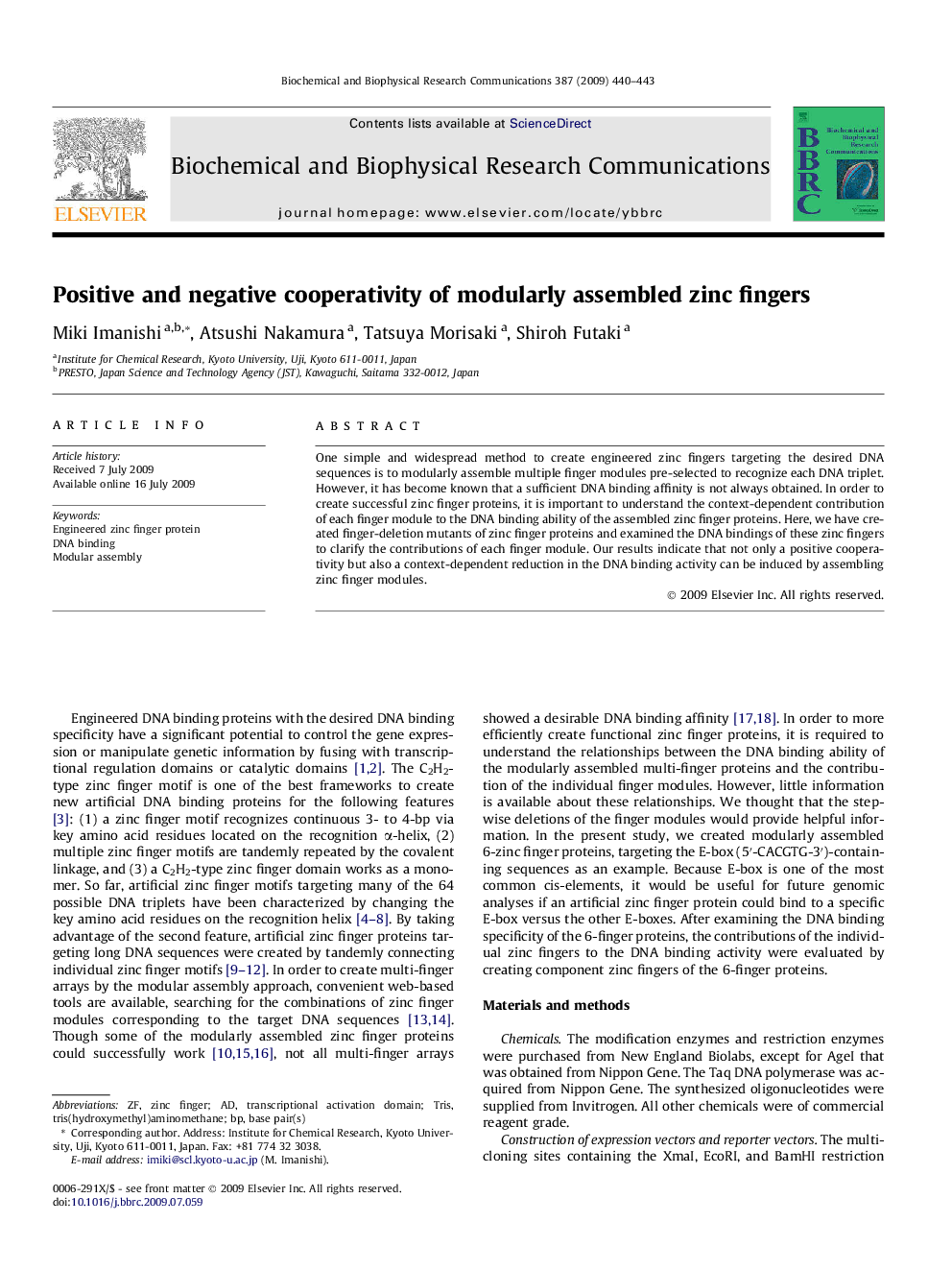| Article ID | Journal | Published Year | Pages | File Type |
|---|---|---|---|---|
| 1933110 | Biochemical and Biophysical Research Communications | 2009 | 4 Pages |
One simple and widespread method to create engineered zinc fingers targeting the desired DNA sequences is to modularly assemble multiple finger modules pre-selected to recognize each DNA triplet. However, it has become known that a sufficient DNA binding affinity is not always obtained. In order to create successful zinc finger proteins, it is important to understand the context-dependent contribution of each finger module to the DNA binding ability of the assembled zinc finger proteins. Here, we have created finger-deletion mutants of zinc finger proteins and examined the DNA bindings of these zinc fingers to clarify the contributions of each finger module. Our results indicate that not only a positive cooperativity but also a context-dependent reduction in the DNA binding activity can be induced by assembling zinc finger modules.
